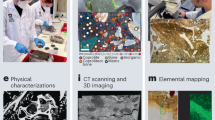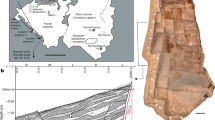Abstract
HUXLEY'S services to geology were mainly through his palaeontological work, both, in his original research and in his critical review of the work of others, largely with a view of testing its bearing on evolution. As he said on one occasion, “the sole direct and irrefragable evidence of the method whereby living things have become what they are is to be sought among fossil remains.” Like Darwin, he was somewhat disappointed by the want of definiteness of some of this evidence, but, on the other hand, he was able to show that among certain types of life, phylogenetic chains could be made out. His faith in geological evidence is shown by his separation of the Elgin Sandstones from the Old Red Sandstone with which they had been formerly classed, and the placing of them in the New Red Sandstone division on the faith of their fossil reptilian remains.
This is a preview of subscription content, access via your institution
Access options
Subscribe to this journal
Receive 51 print issues and online access
$199.00 per year
only $3.90 per issue
Buy this article
- Purchase on Springer Link
- Instant access to full article PDF
Prices may be subject to local taxes which are calculated during checkout
Similar content being viewed by others
Rights and permissions
About this article
Cite this article
WATTS, W. Geological Thought and Teaching. Nature 115, 732–734 (1925). https://doi.org/10.1038/115732a0
Issue Date:
DOI: https://doi.org/10.1038/115732a0
Comments
By submitting a comment you agree to abide by our Terms and Community Guidelines. If you find something abusive or that does not comply with our terms or guidelines please flag it as inappropriate.



